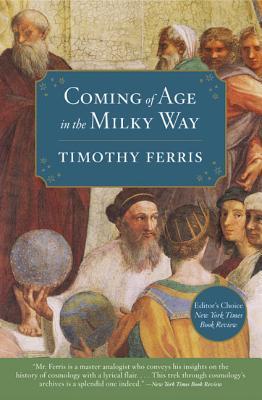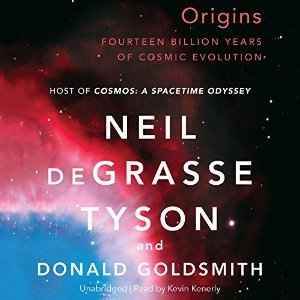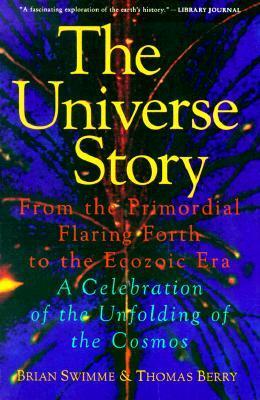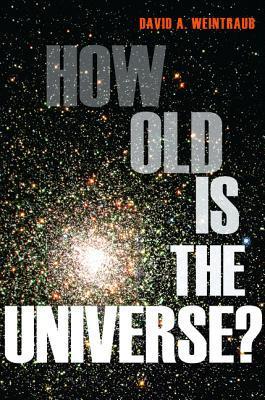
Coming of Age in the Milky Way
Book Description
Unravel the cosmos and discover the astounding tapestry of existence in "Coming of Age in the Milky Way." Timothy Ferris takes you on an exhilarating journey from ancient stargazers to the frontiers of modern astrophysics, weaving together science, philosophy, and the profound questions of life’s meaning. With each page, the mysteries of the universe unfold—black holes, distant galaxies, and the very essence of time itself. As humanity stands on the brink of cosmic understanding, will we seize our place among the stars, or will the answers slip through our fingers like stardust? What does it truly mean to be a part of this vast universe?
Quick Book Summary
"Coming of Age in the Milky Way" by Timothy Ferris is a sweeping chronicle of humanity’s quest to understand the universe. Tracing our journey from the earliest celestial observations to the breakthroughs of modern astrophysics, Ferris illuminates the individuals, ideas, and pivotal moments that shaped our cosmic worldview. The book seamlessly blends history, science, and philosophy—exploring how ancient myths evolved into scientific theories, and how our perception of the universe continues to expand with each discovery. Ferris not only explains the science—relativity, quantum mechanics, black holes—but also reflects on the existential implications of cosmology, challenging us to ponder our place in the vastness of space and time. Ultimately, the book is an invitation to wonder, humility, and curiosity as we face a universe both knowable and mysterious.
Summary of Key Ideas
Table of Contents
Humanity’s Evolving Cosmic Perspective
Ferris opens the book by tracing early human attempts to make sense of the night sky, revealing how ancient cultures built myths, calendars, and cosmologies around the stars. He details how early stargazers and philosophers, from Babylonians to Greeks, sought to find order in the heavens—laying the grounds for scientific inquiry. Ferris shows how these early efforts led to the development of rudimentary astronomy and the notion that the universe might operate according to comprehensible laws.
The Scientific Revolution and the Expansion of Knowledge
The narrative advances through the Renaissance and the Scientific Revolution, spotlighting figures like Copernicus, Galileo, Kepler, and Newton. Ferris explores how groundbreaking observations and mathematical advances shattered geocentric models, leading to a heliocentric cosmos governed by universal laws. He illustrates the gradual, sometimes contentious, acceptance of these ideas and celebrates the triumph of evidence and reason over dogma and tradition, marking a true coming of age for science.
The Nature of Space, Time, and Matter
Moving into the modern era, Ferris delves into the revolutions of physics and astronomy. He explains Einstein’s theories of relativity and the counterintuitive realities of quantum mechanics, making these complex concepts accessible for readers. The book explores discoveries of distant galaxies, the expanding universe, black holes, and the cosmic microwave background—signposts that have mapped the universe’s history and likely fate, positioning humanity as cosmic explorers.
The Interplay of Philosophy and Science
Throughout, Ferris addresses the philosophical significance of our expanding knowledge. He confronts questions about determinism, existence, and humanity’s place in a possibly infinite universe. The interplay between science and philosophy emerges as crucial, with Ferris showing how scientific discoveries reshape existential and even spiritual perspectives. He highlights the humility and awe demanded by the cosmos and cautions against hubris.
Our Place and Future in the Cosmos
In closing, Ferris confronts the future of cosmic discovery. He discusses the limits of human knowledge, technological challenges, and the persistence of unanswered questions—from the nature of dark matter to the possibility of life elsewhere. Inviting readers to consider our role as stewards and seekers within the Milky Way, Ferris urges a continued embrace of curiosity and wonder, implying that the true coming of age lies in our ongoing quest to understand the universe and our ephemeral place within it.
Download This Summary
Get a free PDF of this summary instantly — no email required.



![The Whole Shebang: A State-of-the-Universe[s] Report cover](https://images-na.ssl-images-amazon.com/images/S/compressed.photo.goodreads.com/books/1347278841i/310330.jpg)

